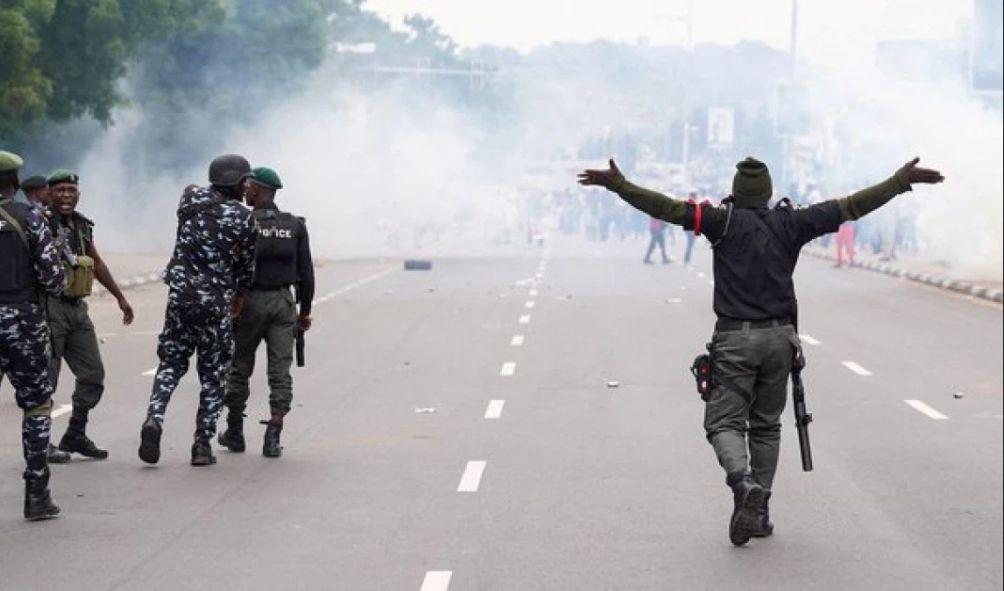Nigerian Businesses Count Losses From Inflation Protests
Days after hundreds of thousands of people took to the streets across Nigeria to protest against inflation and other economic hardships, clothing seller Michael Nwankwo is still counting the cost of the business he lost.
At least 22 people died, according to Amnesty International, in the demonstrations that started on Thursday last week and ebbed over the weekend after a crackdown by security services.
Rallies were largely peaceful in the commercial hub of Lagos. But many businesses rolled down the shutters and customers stayed home as a precaution, traders said.
“I don’t even really know how to quantify the loss, because each day you do not open you lose prospects to make money,” Nwankwo said at his shop in the city’s Marina market.
ALSO READ:
- “Two Groups, One Agenda”: Gachagua Accuses Raila of Secret Political Deals
- Exclusive: Ida Odinga’s 75th Birthday Party in Karen (Photos)
- FKF President Discloses Exact Amount Paid to Harambee Stars Players
- Gachagua’s Ally Senator John Methu Admits Ruto Might Win 2027 Elections
- Maraga Explains Why He Hasn’t Campaigned in Kisii Despite 2027 Bid
Doris Nkiriuka Anite, Nigeria’s Minister of Industry, Trade and Investment, said on Saturday the unrest was costing the economy more than 500 billion naira ($324.68 million) a day.
Adewale Oyerinde, head of the Nigerian Employers’ Consultative Association, said the protests would have a longer-term impact.
“When you stall the production process, businesses can’t produce, they can’t sell, and the shock feeds back into the economy. If things are destroyed, they will still have to find resources to repair them,” he added.
Activists had originally called for “#10DaysOfRage” in online messages after data showed annual inflation hit a 28-year high of 34.19% in June.
Protests eased following a tough police response and a call for a pause by President Bola Tinubu.
Nigerian Businesses Count Losses From Inflation Protests
